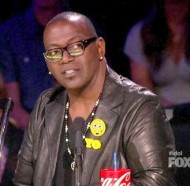Language development goes beyond learning names of objects and grammar to learning slang and idiomatic expressions. It is essential for older children and teens with autism to have a good handle on how peers are using language. Parents may have mixed feelings about teaching slang as it is often associated with non-standard words referring to body parts and sexuality. It feels wrong for adults to intentionally teach about words we really don’t want kids to use, but children with autism often benefit from direct teaching about all forms of non-literal language. Kids with ASD can particularly get in trouble with sexually tinged language, for example accidentally using a common word that has multiple meanings. Peers may find ways to use this lack of knowledge to tease a child with a disability so that others in the group will laugh at the child’s cluelessness.
When kids with autism are small, we first struggle with teaching basic naming. We move from naming to generalization: it’s not enough to name one picture of a cow, kids also need to recognize a cow with different colors and patterns, in cartoons and photos, as well as more abstract toy cows. Language learning starts out on this concrete level. Often, speech therapists are “done” teaching language when a child has a reasonable vocabulary and grammar as measured by tests of expressive language. When parents express concerns that a child is not understanding and using speech like his peers, speech therapists may send home a worksheet with 20 examples of non-literal language and idioms, but this is just a drop in the bucket in teaching idioms as there are thousands of such expressions in daily use.
Higher level academic work is dependent on understanding of abstract language, and reading such literary classics as Shakespeare requires the ability to decipher new meanings. Students with autism will need assistance in progressing from concrete to more abstract language if they are mainstreamed academically. Parents can support learning about non-literal language by continuing to read aloud with children even after they are reading on their own and discussing meanings of words, expressions, and social inferences. Popular music, TV shows, movies, and cartoons are also rich sources of language that parents can use children to take advantage of “teachable moments” with children. It can be fun to teach through the use of pictures. For several years, I put an idiom of the day on my daughter’s laptop, so that she’d see it when she logged on.

Cry your eyes out. Lists of idioms, as well as funny idiom pictures drawn by children can be found at Idioms by Kids

Selena Gomez crying her eyes out. Some children do better with pictures of what an idiom really means, rather than humorous drawings of literal interpretations.
Typical children do not need to be taught basic idioms, but a child with autism ,may not pick up the meaning in context. In later elementary school, idioms may be taught as part of language arts, but children with autism need instruction early, in order to follow basic directions given by adults. A child may look like a deer in the headlights when you tell him to “hand it over” or to give you a “hand”. Sometimes an adult will give directives using indirect or idiomatic language, and become upset when a child with autism appears to be non-compliant. But if you say “Would you mind backing up a little?”, children with autism may get stuck on “Would you mind?”, because they don’t understand that they need to comply even if they DO mind. They may not understand the variety of meanings of the word “back”: back up, back down, get your back up, get off my back, behind her back. You can find long lists of these expressions at websites, such as Free Language Stuff. I use this phrases intentionally with children with autism, and provide them with an immediate translation. For example, I might tell a child to “cut it out” and follow-up saying “that means I want you to stop”.

My daughter, as a toddler, often started screaming if someone offered her a “diet soda” as she thought it would make her “die”
In later elementary school, no later than 5th grade, it is time to get familiar with slang expressions. Slang includes new uses of existing words, as well as invented words. Some invented words are based on abbreviations. This is more and more common as abbreviations emerge from “text talk”. Some text talk is only used during writing /texting (such as CUL8R) but other text talk is increasingly incorporated into conversation such as OMG, TMI, BFF, BF/GF, yolo ( you only live once ) and IDK ( I don’t know). Kids don’t need to be able to use these expressions, but it helps if they understand what they mean.
It’s fun to introduce slang in current music, and you can find less sexy versions of music videos appropriate for younger kids, such as the Chipette versions of popular songs. Here is a fun Chipettes mash-up of two popular songs: Something To Dance For / TTYLXOX “MashUp” (The Chipettes Version) – YouTube.

Randy Jackson from American Idol is known for his use of expressions such as “Yo Dawg” “you can really sing the phone book” (means you can sing anything) and “that was HOT” (awesome or sexy). Incorrect usage of phrases such as ” he can really blow” (in this context, meaning sing) can lead to trouble for kids with high functioning autism.
Some abbreviations, such as LMFAO, BFD, and WTF are substitutions for “bad” language. If you don’t know what these mean, you can look them up on Urban dictionary.com . It is important to teach kids that although abbreviations and substitutions of bad language are slightly less offensive, using them with teachers and the principal is disrespectful. Many children with autism appear to be disrespectful because they miss the social context of language. We need to teach them many unwritten rules, for example, that adults can use command language with children, but school age children are rude when they use command language with adults. Imagine a child with Asperger’s telling the principal to “move it”, or worse, “move your butt”. When a child is scolded for being rude, it just confuses them, as they may be repeating words they heard on the playground, or that adults used with them.
Kids across the autism spectrum can pick up bad language they hear at school or at home, but explanations should be tailored to cognitive level of the child. Younger children and children with cognitive delays may hear a bad word they don’t understand and repeat it; the heightened attention that follows makes it more likely that a child will repeat the word just for the drama. The safest approach is for adults to use minimal attention and emotion when addressing use of “bad words”. For children who enjoy drama sometimes it’s possible to teach funny or cute popular expressions, so that they do get the attention they are craving. It might be cute if a child says “Oh….sugar-monkey” or “aye caramba” as substitutes.
Many kids with Asperger syndrome think about rules as black and white with no gray area, and so they may be stressed when peers begin to experiment with language. For children who are strict rule followers, you can introduce and explain all forms of bad language before they start hearing it at school and seeing it on bathroom walls. Having a talk about the meaning and usage of words is not likely to lead to these children using the words. On the other hand, when an adult role model screams ” !?!@#!” every time something goes wrong, what happens next is predictable.

Bella Thorne and Zendaya are current stars on the Disney channel. Lyrics of Bella Thornes: TTYLXOX: “Be be be my BFF
Cause IDK what’s coming next
And I’ll be LMHO with the rest
So TTYLXOX”
Keep in mind that usage rules for slang are very specific, and include intonation and body language. Teaching about social context is critical: kid talk changes dramatically depending on whether adults are present. Typical children learn that they can say things to a young adult babysitter that they can’t say to their grandmother, but we need to teach this to child with autism.
Moving on to actual slang: The terms sick, mad, dope, fly, and epic are all positive descriptor words. Sick implies over-the-top insanely fantastic. Mad seems to be used to replace “a lot of ” as in,”I have mad homework “. It can also mean impressive as in “he has mad skills”. Epic is a superlative: the term epic fail is what happens when you lose a video game, or make a giant mistake. Calling someone a tool, or saying something is whack are both negative. Both have multiple slang meanings – if you don’t know the meanings, look them up! Other terms: crib (home), bounce (leave; “let’s bounce” means let’s go), and ride (car, as in the show “Pimp my Ride”). Tight can mean either “close” as in “we’re tight”, uptight and closed up as in ” my mom’s tight”, or stylish as in “those is some tight kicks”. Swag is a positive word meaning stylish. Saying that someone “killed it” means they did a great job, not that they committed a crime.
Another fun new term is Noob which is short for Newbie, or newcomer, which emerged from multiplayer online games, referring to someone who doesn’t know the social rules of the setting/game. Bromance is a non-sexual closeness between males. A frenemy is someone who you seem to be friends with, but who you don’t really trust. Some terms, such as Homie, home skillet, Shortie (or Shawtie) and props have urban origins. Shawtie is an affectionate term for an attractive female, but can also be used for a friend. Giving someone props means to give respect to someone. Junk is a current word referring to private parts on a male, or referring to a female’s “booty”.
Some teens with autism may start to pick up on new slang on their own, but it helps to have on-going open discussion of language with open-minded adults to clarify appropriate usage. Adults need to think carefully about how to teach language use, as children who behave like a parent Mini-Me will have reduced social acceptance.

Sheldon Cooper in the TV sitcom Big Bang Theory has a literal understanding of language despite a genius IQ. The very popular show revolves around Sheldon’s constant social misunderstandings. I feel a little queasy about laughing at him.
Props to my friend and colleague Virginia for helping me with this post, she is mad fly!
